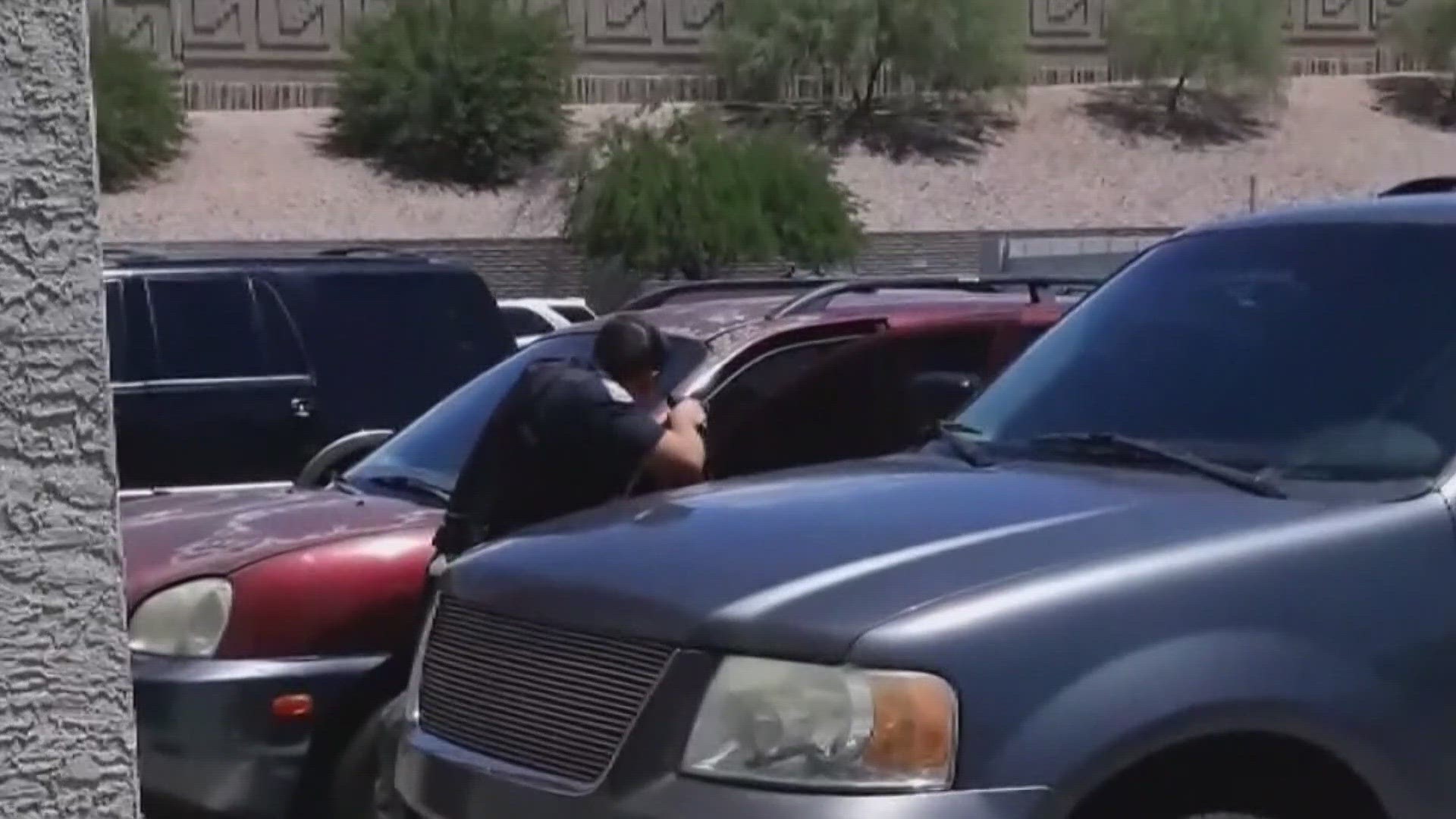PHOENIX — The Arizona Attorney General agreed to settle a federal lawsuit against the state, declaring that a state statute that bans video recording within eight feet of law enforcement activity is unconstitutional.
The statute, signed into law last July by then-Governor Doug Ducey, made such video recording a class three misdemeanor in many circumstances.
Last August, the Arizona Broadcasters Association joined the American Civil Liberties Union and several local media outlets, including 12News, to file a federal lawsuit challenging it.
“Plaintiffs… bring this lawsuit to prevent Arizona from trampling on their rights to report news, document the activities of public servants, and hold police accountable for their actions toward the people they are sworn to protect and serve,” attorneys argued in the lawsuit.
In September, then-Attorney General Mark Brnovich refused to argue against the plaintiffs, entering a “non-opposition” notice in court, stating in part: “The Attorney General is not the proper party to defend the merits of (the statute) A.R.S. § 13-3732.”
On Wednesday, a representative for the current Arizona Attorney General, Kris Mayes, agreed to an injunction that finds the law violates the First Amendment and cannot be enforced.
“It comes as no surprise to me because Attorney General Brnovich refused to try it in court,” said the initial sponsor, Republican state Representative John Kavanagh. “It is my hope that this current judge will in fact explain the reasons why it is unconstitutional in the hopes that I could craft a new bill that takes care of those issues.”
Kavanagh, a former police officer himself, told 12News on Thursday that he does not believe current laws do enough to protect police from interference and does not believe that limits on distance would stop the public from holding police accountable.
“The people who oppose this law made it very clear that people standing one foot behind the officer is not interfering. The current obstruction law isn’t enough,” Kavanagh said. “I am not preventing videotaping. I’m just saying keep back so you don’t distract the officer.”
RELATED: Wall Street Journal reporter demands answers from Phoenix police after he's detained by officers
The settlement agreement states that the law specifically violates the First Amendment in several ways, including that:
- “There is a clearly established right to record law enforcement officers engaged in the exercise of their official duties.”
- The law “singles out” video recordings of law enforcement, as opposed to simply standing, writing notes or otherwise being within eight feet.
- It’s “unnecessary to prevent interference with police officers given other Arizona laws in effect.”
In addition to declaring the law unconstitutional, the settlement agreement also states that the Arizona Attorney General’s office will pay $69,000 in attorneys’ fees. A spokesperson for the AG declined to comment on the settlement on Thursday.
The agreement is now before U.S. District Court Judge John Tuchi, whose signature would officially strike it down.
Up to Speed
Catch up on the latest news and stories on the 12News YouTube channel. Subscribe today.

